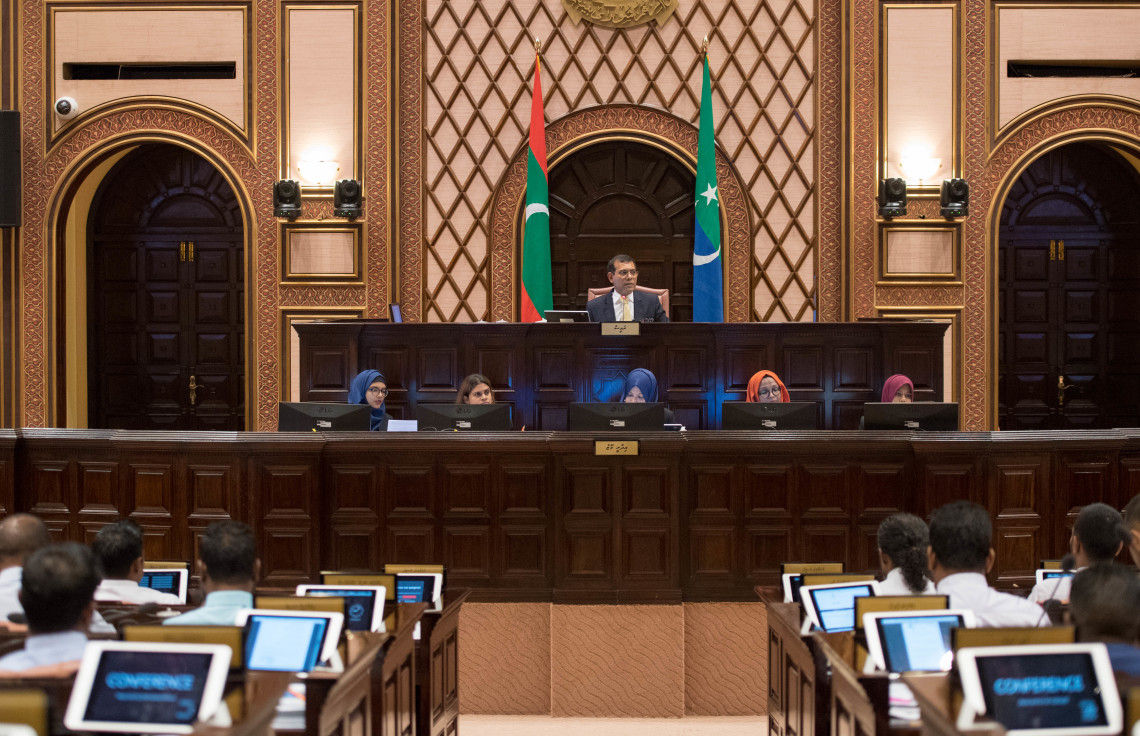Perjury charge sought against Bank of Maldives official
Deputy CEO Shareef is accused of lying to an oversight committee.

23 Jul 2019, 09:00
Parliament will seek a police investigation of Bank of Maldives Deputy CEO Mohamed Shareef over alleged perjury, Speaker Mohamed Nasheed announced on Tuesday.
Shareef is accused of providing false information and perjuring himself while testifying before parliament’s public accounts oversight committee last week.
A day after parliament announced its intention to seek a perjury probe, Shareef wrote to the speaker and pledged to cooperate with the committee inquiry, prompting Nasheed to declare that he was considering withdrawing the request made to the police.
But Nasheed announced at the start of Tuesday’s sitting of parliament that a review of the committee meeting’s minutes has made it clear that Shareef had committed perjury in an effort to mislead lawmakers.
Become a member
Get full access to our archive and personalise your experience.
Already a member?
Discussion
No comments yet. Be the first to share your thoughts!
No comments yet. Be the first to join the conversation!
Join the Conversation
Sign in to share your thoughts under an alias and take part in the discussion. Independent journalism thrives on open, respectful debate — your voice matters.




